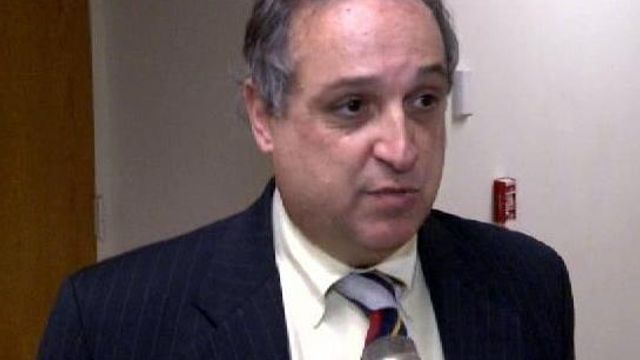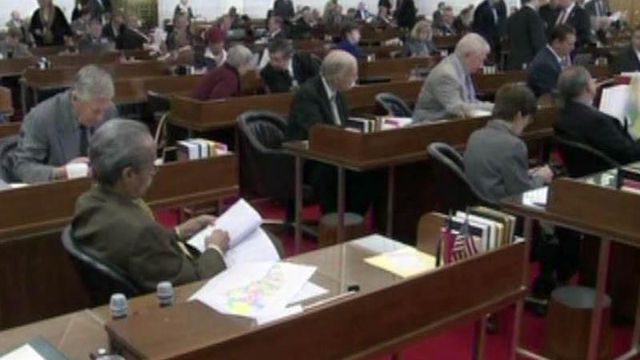Map fixes: Constitutional?
NC's new voting maps, already the subject of two lawsuits by Democratic critics, will likely face a third challenge: that today's legislative fixes were no more constitutional than the flawed maps they were intended to correct.
Posted — UpdatedThe technical corrections bills fixing the legislation for the redistricting maps didn’t look likely to be controversial going into today’s session. After all, Republicans argued, the maps had already been approved by the US Department of Justice.
The issue, they said, was merely a technical glitch. The software they used to translate the map into hundreds of thousands of 13-digit numbers had inadvertently left thousands of census blocks out of the final legislation.
In total, the House map omitted 267,296 voters. The Senate map left out 184,794. And the Congressional maps left out 23,777. Some voters may have been omitted from more than one map, though, so the real number of affected voters is probably less than the total of those numbers, just over 475,000.
But those voters weren’t left hanging. According to state law, census blocks that aren’t assigned are put into whatever adjoining district has the least voters.
The result, according to both Democrats and nonpartisan staffers, is hodgepodge maps that don’t pass constitutional muster. The fix bills were meant to make the legislation match up with the maps.
That’s where things get complicated. The Republicans say the maps are the defining document of intent, so it’s okay to change the law enacting them if errors in the law cause conflict with the maps.
Democrats, on the other hand, say when it comes to legislation, it’s not the maps that matter, it’s the words in the bill that makes the maps into law.
At issue is a provision in the state constitution that bars lawmakers from tinkering with “established” maps before the next decentennial census. That would be in 2021.
The only other way to fix the map bills would be to get a judge to declare them unconstitutional, which could potentially open a can of worms the GOP would rather not revisit. So they opted to address the problem through legislation.
Rep. Rick Glazier, D-Cumberland, says that's no more constitutional than the error-laden bill is.
“The Republicans have us here under what they’re calling a ‘curative’ bill – ‘curative’ meaning simply an interpretation,” Glazier said. “This isn’t an interpretation. They left 400,000 people out of the process.”
“Now they’re trying to fix it by creating a second constitutional problem,” he said. “You can’t sort of fix one constitutional problem by creating another one. And they are stuck with the mess they’ve created – we are all stuck with the mess they’ve created – and in fact the problem is that the plans were entirely unconstitutional.”
Glazier said the ultimate remedy rests with the courts. The issue will likely come up again in one or both of the lawsuits filed by critics of the maps.
House Speaker Thom Tillis said he’s not worried that the courts will find the map bill fixes unconstitutional.
“Nor is the Attorney General, who worked with us in consultation and actually consulted with the [U.S] Department of Justice,” he added tonight.
Copyright 2024 by Capitol Broadcasting Company. All rights reserved. This material may not be published, broadcast, rewritten or redistributed.






